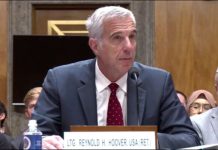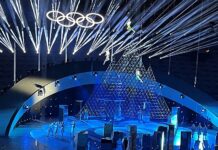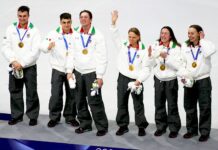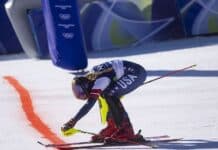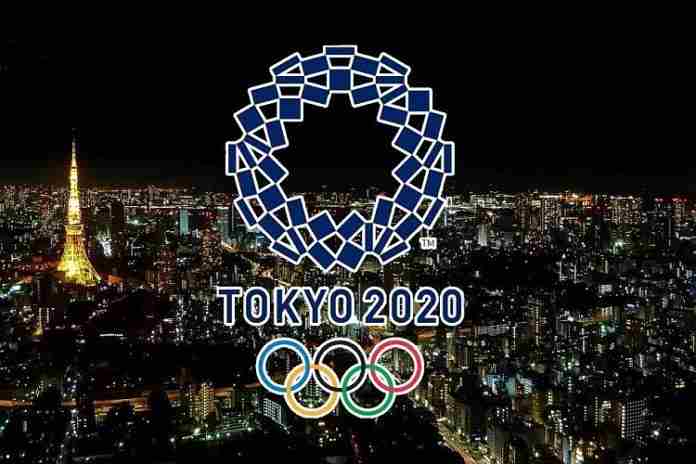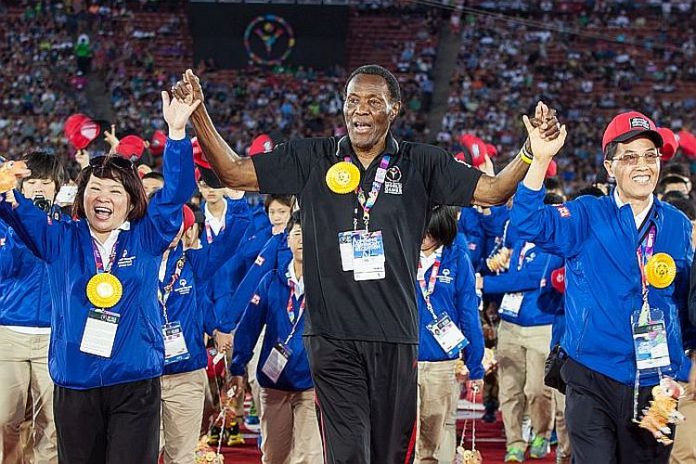(★ Friends: Well, the new server and support bill has arrived. Your generosity covered the June bill and part of this one. This isn’t the easiest time to ask, but if you would like to help, please donate here. Your enthusiasm is the reason this site continues. ★)
The latest news, notes and quotes from the worldwide Five-Ring Circus:
● International Olympic Committee ● To the surprise of absolutely no one, Germany’s Thomas Bach was confirmed as the only candidate in the forthcoming election for the Presidency of the International Olympic Committee, to be held next March.
Bach won an initial term of eight years back in 2013 and can serve for another four years when re-elected next March, into 2025. While he has detractors, he has overseen a stunning change in IOC policies, procedures and – perhaps most of all – attitude, to the relief and in many quarters, disbelief, of long-time observers.
¶
On Wednesday, the IOC released a 44-page report on “Recommendations for an IOC Human Rights Strategy,” commissioned in 2019. It cheered the inclusion of United Nations principles in the Host City agreements from 2026 forward, but also warned that there are significant challenges ahead:
“Notwithstanding the many positive steps taken by the IOC in recent years to protect athletes and other stakeholders from various harms connected to the practice of sport across the Olympic Movement, or to the hosting of Olympic Games, media reports of various abuses persist stubbornly. …
“Turning to the second sphere of the IOC’s operations – the organization of upcoming Olympic and Youth Olympic Games – there are a number of urgent issues for the IOC to engage with. In 2019, we saw that persistent allegations of supply chain human rights (and environmental) violations connected to the organization of the Tokyo Games could not be effectively resolved. In the case of the Olympic Winter Games in Beijing in 2022, in our view, the human rights impacts that could be connected to the Games are severe – as our consultations with expert civil society stakeholders also confirmed – and addressing them remains challenging. In the case of Paris 2024, the national legislative context is supportive of human rights; the IOC and its OCOG partner are still working out how to integrate the additional expectations contained in the new ORs into its existing Games management approach. While the YOG in Senegal in 2022 [sic] offers substantial opportunities to advance respect for human rights, achieving this will depend on a coherent strategy to address chronic child protection issues in connection with the event, implemented through a new type of relationship between the IOC and the government as its official counterpart.
“In summary, the IOC will need to take on new kinds of roles if it wants to see its new human rights expectations of hosts realized in practice.”
Even with regard to the IOC’s TOP sponsors, the report foresees difficulties:
“It will be a struggle for the IOC to monitor compliance with its expectations; the organization will need to think creatively about how to use leverage to push its partners to address severe risks to people connected to their operations, and be prepared for some difficult conversations.”
Naturally, the report recommends the creation of a new staff entity – a “Human Rights Unit” – to be established within the IOC by June of this year.
● Games of the XXXII Olympiad: Tokyo 2020 ● Agreement was announced between the Tokyo Olympic organizers, the Tokyo Metropolitan Government and the Japanese national government on the projected costs and shares of the delay of the Games to 2021:
(1) The cost of postponing the Games by a year are estimated at 198 billion yen (~$1.90 billion), with the organizers paying ¥103 billion (~$989.4 million), the Tokyo government paying ¥80 billion (~$768.5 million) and the national government, ¥15 billion (~$144.1 million).
(2) Coronavirus countermeasures are estimated at ¥96 billion (~$922.0 million), with the national government contributing ¥56 billion (~$537.9 million) and the Tokyo government, ¥40 billion (~$384.2 million).
(3) Added up, the total added expense is projected at ¥294 billion (~$2.82 billion). The Tokyo organizers will pay ¥103 billion (~$989.4 million), the Tokyo government will contribute ¥120 billion (~$1.15 billion) and the national government, ¥71 billion (~$681.7 million).
The organizing committee’s actual expenditures could be reduced by applying the existing budget contingency of ¥27 billion (~$259.2 million) to its share.
The actual postponement costs of $1.90 billion are far less than the wild estimates of up to $6 billion made immediately after the announcement of the date changes, but the added costs and anxiety of the pandemic has undermined – for now – the enthusiasm for the Games in Japan.
Comment: The costs are significant, but all credit to the Tokyo organizers and the governments for keeping their promises of transparency on the added expense and the shares that each entity will cover. This should not be taken for granted.
¶
An interim report from a joint panel of governmental and Olympic organizing officials on coronavirus countermeasures for next summer’s Olympic Games was released on Wednesday. It included:
● Recommendations that athletes be tested for the virus upon arrival in Japan and every 96 to 120 hours when in the Olympic Village, even if no symptoms are apparent;
● Athletes will be asked the leave the Olympic Village once their competitions are concluded;
● Admission to Japan of foreign spectators could be allowed from countries with “controlled virus conditions,” with strict contact-tracing requirements.
¶
Kyodo News reported Wednesday that the Tokyo organizers “received requests for refunds for about 18 percent of the tickets bought for the Olympics due to the one-year postponement caused by the coronavirus pandemic.
“Organizers said they received some 810,000 applications for Olympic ticket refunds out of about 4.45 million tickets sold in the domestic lottery, and are considering reselling the refunded tickets in the future.”
Refunds will be issued during December; the organizers should have no trouble re-selling the returned tickets given enormous demand during the ticket-selling period.
¶
The International Testing Agency announced the formation of a 10-member team of national anti-doping experts and International Federation representatives to ramp up scrutiny on athletes expected to compete in Tokyo.
“The ITA Tokyo 2020 Pre-Games Expert Group is responsible for reviewing available anti-doping information on athletes who are likely to compete in the Games. It performs a risk assessment and shares testing recommendations with other anti-doping organisations (ADOs) to ensure that effective testing is conducted globally through a coordinated effort. …
“In the past six months, it re-calibrated its efforts in order to start issuing recommendations in line with an updated risk assessment and adapted qualification lists. Throughout the entire pre-Games period, the group will issue up to 25,000 recommendations on 33 sports disciplines to ADOs all over the world and also monitor their implementation.”
Some 6,000 testing recommendations were made this week, of 124 national teams. During the Tokyo Games, the total number of tests is expected to also number about 6,000.
● Games of the XXXIII Olympiad: Paris 2024 ● The fury over which events will be held in Paris in 2024 is coming to a head and the program is expected to be confirmed during next Monday’s IOC Executive Board meeting, to be held via videoconference.
The long-running fight over the International Federation for the sport of Parkour – usually a street event with competitors moving through essentially a predetermined obstacle course by jumping, climbing, or running – is one of the flash points in the 2024 discussion.
The sport has its own IF, known as Parkour Earth, but the Federation Internationale de Gymnastique (FIG) has claimed the sport for Olympic purposes and is proposing it for the Paris program.
This prompted an open letter to the IOC from Parkour Earth on Tuesday, asking it “to reject any submission by the FIG to include Parkour on the Olympic programme” and continued in part:
“As you know, parkour has been recognised as a sovereign, distinct, and independent sport in its own right, and as such cannot be considered a discipline of, or subsidiary to, gymnastics or any other sport. …
“Unfortunately, FIG’s encroachment and misappropriation of our sport continues.”
The letter notes the federation’s understanding that a similar request by the FIG to include Parkour for the Tokyo Games was rejected in 2017, and asks for a similar result now.
The IOC has said that it wants to maintain the size of the 2024 Games at 310 events (as well as a hard cap of 10,500 athletes), so for any event to be added, something must be dropped. It will be fascinating to see the outcome of the dozens of requests for new events when the list is revealed next week.
● Athletics ● The World Athletics Council met by videoconference earlier this week and considered the situation of the Russian Athletics Federation at some length.
While the Russians paid the $6.31 million in fines and costs by 15 August 2020 as required, the roadmap for reinstatement submitted by 31 August “required significant elaboration” to be viable. The deadline for such a plan was set for 1 March 2021.
Rune Andersen (NOR), the chair of the federation’s Russia Task Force noted in his report:
“On Monday of this week (30 November 2020), Mr Piotr Ivanov was elected as the new President of RusAF, together with a new Praesidium. I had a good introductory call with Mr Ivanov yesterday. I told him that previous RusAF regimes had let down badly both Russian athletes and the global athletic community; but the Taskforce is ready to help him turn things around, if he is ready, willing, and able to commit to the fundamental changes that are required in Russian athletics.”
An agreement on the next steps in the process had been agreed with the RusAF management in place prior to the election of Ivanov, but Andersen reiterated, “We will now all need to see whether RusAF is ready to grasp this last opportunity.”
Ivanov comes to the track & field federation with a background in international sport, as the head of the Russian Triathlon Federation since 2016; his day job is as the chief executive of a Russian state company specializing in high-speed rail transit.
Andersen’s recommendations included that the Council consider at its March 2021 meeting whether to allow a limited number of Russian athletes (10) to compete as “Authorized Neutral Athletes” in international competitions, including the Tokyo Games … or if a vote of the World Athletics Congress should be held to expel Russia from the federation.
¶
The Wanda Diamond League program for 2021 will see a return to a two-hour broadcast window and staging of 32 events instead of the reduced package of 24 installed for 2020.
Total prize money will reach $7 million, with the triple jump, discus, 200 m, 3,000 m steeplechase and 5,000 m reinstated. However, 2020’s experimental “Final 3″ concept will be installed for the long and triple jumps, shot put, discus and javelin. Only the top three competitors will advance and the marks in the “final” will determine their actual placings.
● Basketball ● The U.S. men’s AmeriCup qualifying team skipped past Mexico, 94-78, on Monday at the Indianapolis Convention Center to remain undefeated in Group D and clinch its spot in the 2022 FIBA AmeriCup.
Mike Fratello’s American squad of mostly G League players was up by 52-34 at halftime and while Mexico closed to within 11 points in the fourth quarter, the U.S. extended the lead back out to win by 16. Center Yante Maten led the U.S. with 21 points (8-10 from the field), followed by guards Joshua Magette (19), John Jenkins (16) and Travis Trice (14), and forward Levi Randolph (12). The U.S. shot 54.4% from the field and limited Mexico to 41.8%.
There are two more games remaining in group play for the U.S.: at The Bahamas on 18 February 2021 and at Mexico on 21 February. Mexico now stands at 2-2, with Puerto Rico and The Bahamas at 1-3.
● Football ● The U.S. Soccer Federation announced a settlement of the “working conditions” section of the lawsuit filed by the U.S. Women’s National Team on Tuesday, reaching agreement on issues regarding staffing, travel conditions and field conditions at the venues selected for each game.
USSF President Cindy Parlow-Cone – herself a former national team star – told reporters:
“I hope that the women and their lawyers see that we are taking a new approach. The way we reached this settlement was in a collaborative way. There was a lot of back and forth and trying to understand where each side was coming from, and that’s how we reached this resolution. So it is my hope that we continue down this path and are able to find a resolution on all aspects of this litigation.”
However, before anyone gets their hopes up of an agreement on the “equal pay” aspects of the women’s team’s suit, Parlow-Cone noted:
“Our aim is to find a resolution with our women’s national team and we’re committed to doing that. We’ve reached out to them. We have offered them the same contract as the men for all games that are controlled by U.S. Soccer. But unfortunately the response has been that they didn’t want to negotiate with U.S. Soccer unless U.S. Soccer was willing to make up the FIFA World Cup prize money, which you all know is the vast majority of the $66 million that they’re requesting in back pay. And we all know that this just isn’t possible from a U.S. Soccer standpoint to make that up. Even pre-COVID this would be devastating to our budget and to our programming. But given COVID and not to be overly dramatic, but it would likely bankrupt the Federation.”
The agreement by the women’s team is strategic, in that if it is accepted by the U.S. District Court, it would clear the way for an appeal to the U.S. Ninth Circuit of the summary judgement handed down by Judge R. Gary Klausner last May of their “equal pay” claims. Klausner determined that the women’s team insistence on, and agreement to, a collective bargaining agreement that differed significantly from the men’s agreement created no triable issue of “equal pay” as alleged.
U.S. Soccer’s collective bargaining agreement with the Women’s National Team expires at the end of 2021.
● Gymnastics ● The long-running USA Gymnastics bankruptcy case and the disagreement between the federation and its insurers over the Nassar scandal cases got even more convoluted this week.
Liberty Insurance Underwiters filed a new lawsuit in the U.S. District Court for the Southern District of New York, asking that court to keep Epiq eDiscovery Solutions from ending its services in the Indianapolis-based bankruptcy case over non-payment alleged by Epiq of about $1.8 million.
Counsel for USA Gymnastics replied quickly and showed their irritation by noting that Liberty had been instructed by the U.S.. District Court for the Southern District of Indiana to provide a “complete defense” for USA Gymnastics in the Nassar matter, and the insurer has appealed this order to the U.S. Seventh Circuit Court of Appeals, adding:
“To be sure, USAG’s insurers as a group have adopted a recalcitrant attitude to their duty to defend, but LIU’s latest maneuver may take the cake.”
An emergency hearing was held in the Bankruptcy Court via teleconference on Thursday, and the matter was continued, with filings and replies due by 14 December and a hearing scheduled for 16 December.
If it’s possible, the proceedings are getting uglier by the day. In the meantime, Bankruptcy Court Judge James Carr is beginning the second-try, court-ordered meditation to try and get the insurers, survivors, USA Gymnastics and the U.S. Olympic & Paralympic to settle the case.
● The Last Word ● Further to the tug-of-war continuing between the World Anti-Doping Agency and the U.S. Office of National Drug Control Policy over U.S. dues and representation on the WADA Executive Committee came good news for WADA.
The U.S. ONDCP has threatened not to pay its $2.7 million dues as it has done in prior years, but the agency’s budget is apparently no longer under threat. WADA announced on Wednesday:
● “[T]he Government of India has pledged an additional USD 1 million, Saudi Arabia USD 500,000 and Egypt USD 100,000, while WADA has already received the USD 992,694″
● “The contributions are additional to the Governments’ annual contributions to WADA’s regular budget, which are matched by the International Olympic Committee (IOC) on behalf of the Sports Movement … which means that these contributions will yield almost USD 5.2 million extra for the global anti-doping system.”
That’s almost double the amount of the U.S. dues which may be in question. Next …
You can receive our exclusive TSX Report by e-mail by clicking here. You can also refer a friend by clicking here, and can donate here to keep this site going.
For our 526-event International Sports Calendar from October 2020 to June 2021, by date and by sport, click here!







